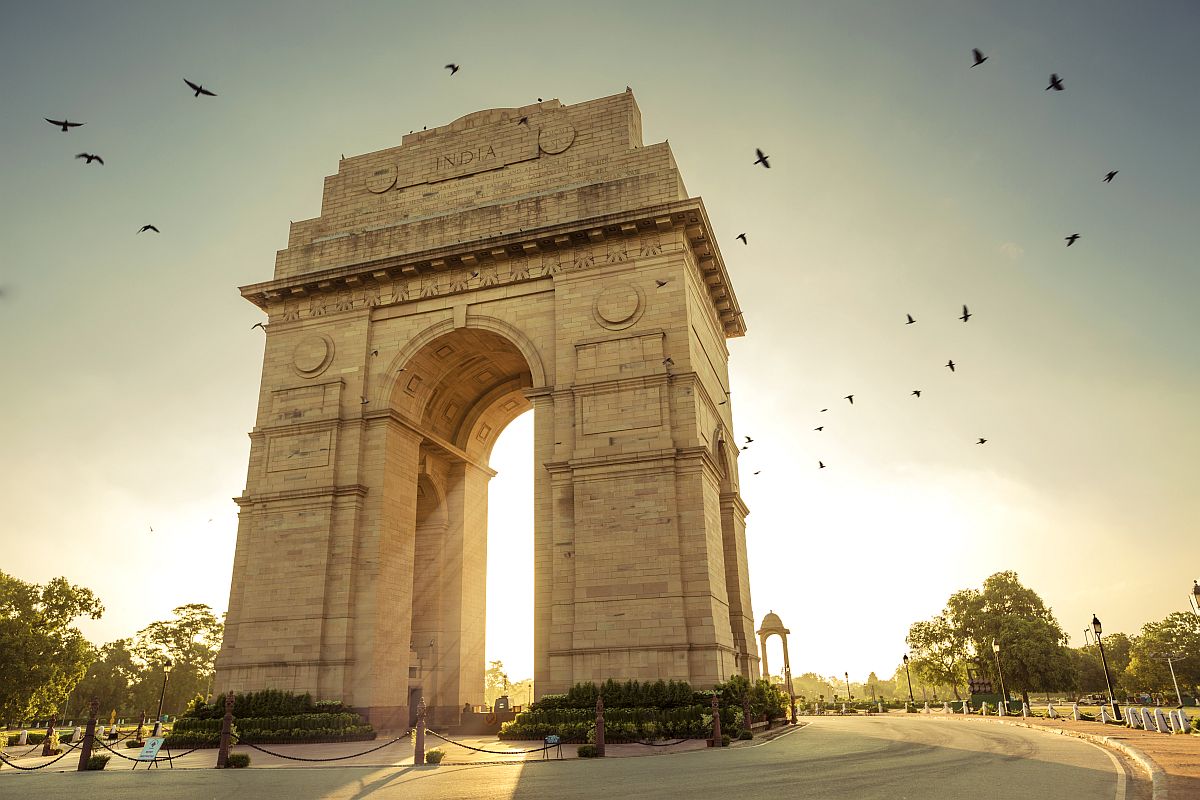Haryana Govt is committed to improving the standard of people’s living: CM
Haryana Chief Minister Nayab Singh Saini on Sunday said that development works are being carried out across Haryana with a focus inclusive on progress.
Finally, there is the small matter of the Constitution to consider. Article 19 guarantees the right to move freely throughout the territory of India and to practise any profession, or to carry out any occupation, trade or business.

Delhi'ites may be getting their India Gate back soon! Last Independence Day showed what India Gate meant to them (Photo: iStock)
More than three decades ago, the areas surrounding Delhi chose to link their fortunes to the national capital. Having had their beds made for them, people in these areas ~ which have each prospered because of the decision to create the National Capital Region ~ are now being told not to lie in them.
Not because of a referendum, nor any other expression of popular will but because of executive fiat as administrations in Uttar Pradesh and Haryana have reached perilously flawed decisions that seal borders and keep doctors away from their patients, vets from pets and people from livelihoods while ripping apart a system of interdependence that had been crafted carefully after the idea was first mooted in the early 1980s.
Advertisement
The Chief Ministers of states that comprise the National Capital Region must put their heads together to take decisions that impact the region. They cannot act unilaterally because by subscribing to the idea of an NCR, they bound themselves to certain protocols which cannot be cast aside arbitrarily. Above all, they and especially their bureaucrats must remind themselves of some essential truths.
Advertisement
What are these truths? First, that the National Capital Region was created with the consent of several state governments – those of Delhi and neighbouring states – to provide a seamlessly connected urban agglomeration that would use the magnetic pull of the national capital to create zones of prosperity in contiguous states. The idea was not to ditch connectivity at the altar of misguided parochialism, or to protect one part from the NCR from another.
Second, that the NCR was created on the premise that people could live anywhere within its boundaries and work anywhere else, and that the various stakeholders would together and holistically create the infrastructure – the metro and train services, the highways, the bridges and the services ~ to facilitate ease of human existence in the region. Long before the phrase came in vogue, the NCR was an exercise in cooperative federalism. Not without reason was it decided to construct the NCR’s main airport on the UP side of a now sealed border, a decision Delhi’s citizens may well like revisited now.
Third, that Haryana has earned more revenue from Gurgaon and Faridabad and Uttar Pradesh from Noida and Ghaziabad than the states could ever have dreamt of without the NCR. Between them, Gurgaon, especially, and Faridabad, contribute the largest chunk of Haryana’s revenues from excise and taxes. Almost as vital is Noida’s role in Uttar Pradesh.
Having profited immensely from their contiguity, it is hardly right to scapegoat Delhi especially when such scapegoating adds ~ immeasurably ~ to the hardship of people who have been conditioned to depend upon each other in so many ways.
Fourth, and if at all borders had to be sealed, Uttar Pradesh ought to have sealed Noida’s and Ghaziabad’s borders with other districts in the state. Similarly, Haryana too could have sealed Gurgaon’s and Faridabad’s borders with Mewat, Palwal and Rewari and not those with Delhi. You cannot be a part of the NCR when it suits you and when it adds to your coffers, and duck behind walls when the going gets tough.
Finally, there is the small matter of the Constitution to consider. Article 19 guarantees the right to move freely throughout the territory of India and to practise any profession, or to carry out any occupation, trade or business. Accepting that emergency public health measures could be deemed reasonable restraints, permitted essential services must adhere to the prescription of Article 19. Especially when stopping doctors at borders deprives their patients of an even more fundamental right ~ the right to life.
Advertisement